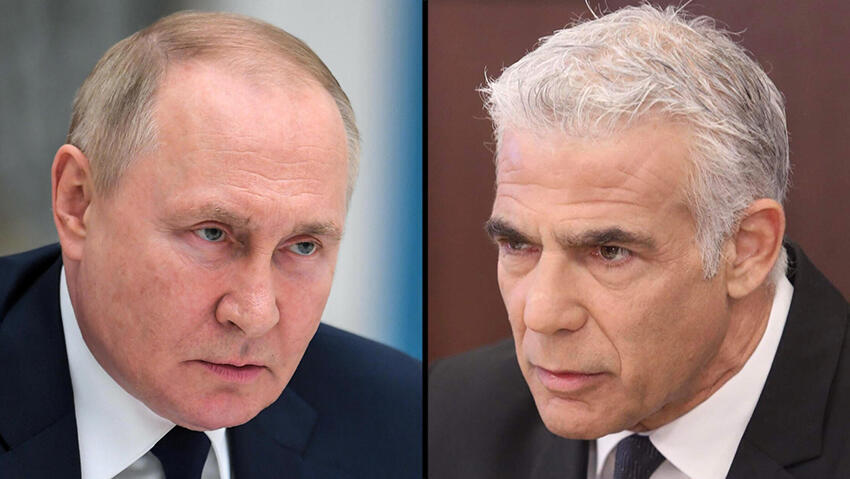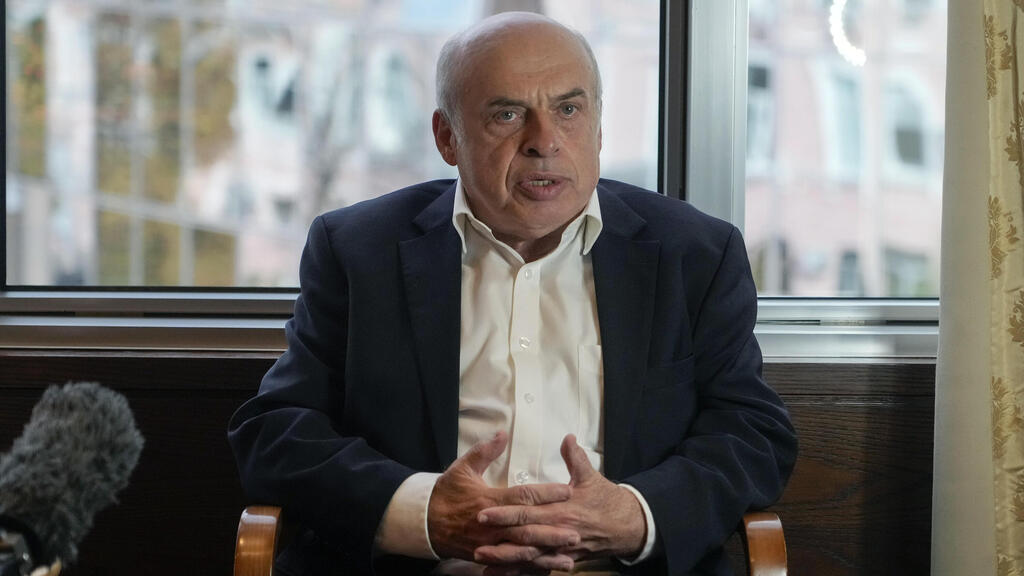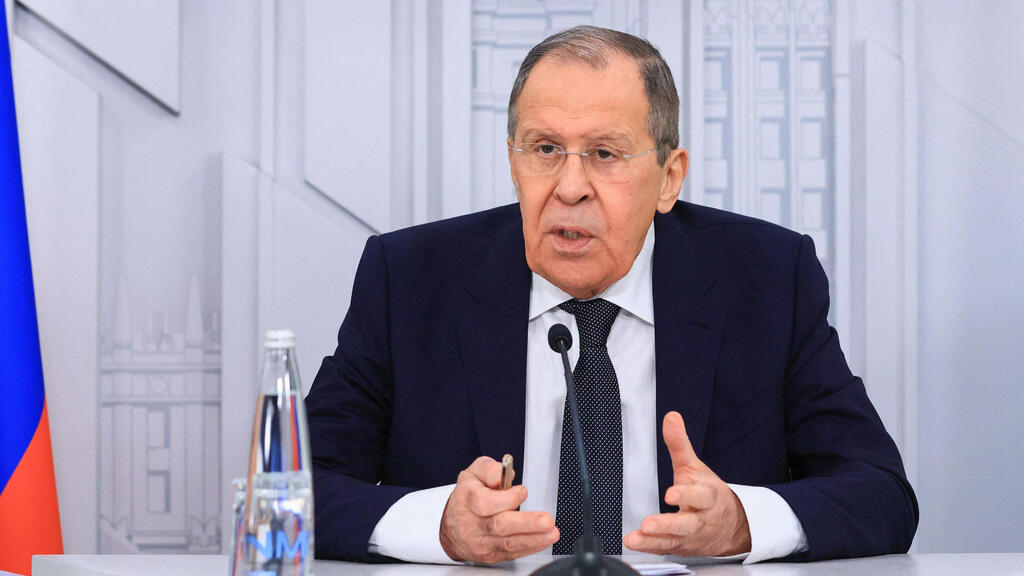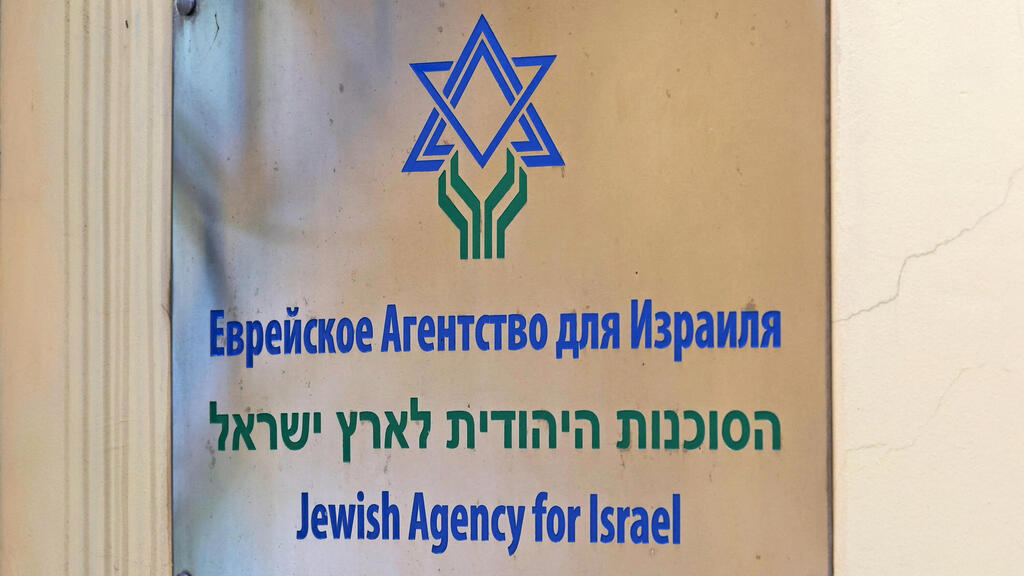A former Israeli envoy to Russia and Ukraine said Monday that he believes Russia’s threats of closing the Jewish Agency in the country are only “rhetorical” and won't undermine relations between the two states.
A Moscow court said last week that the Justice Ministry had requested the "dissolution" of the Jewish Agency because of unspecified legal violations, and set a hearing for July 28. Some experts interpreted the move as a shot across the bow from the Kremlin toward Prime Minister Yair Lapid, who has taken a tougher rhetorical line over the Ukraine conflict compared to his predecessor Naftali Bennett.
Zvi Magen told Ynet he believes Russia's actions are meant to create tension, "but only rhetorical one. Russia doesn't want to deepen the conflict because it will also get hurt," he said.
"Relations between Israel and Russia are still positive, and cooperation in Syria is continuing," he said, adding, "Who knows where this crisis could lead. I hope it will end quietly."
Officials in Israel said the Jewish Agency has been receiving hints about its approaching closure for more than a year but didn't report the issue.
"The Russians didn't like the agency's activity, but it was active for over 30 years, and it was never a cause for sour relations. I think the issue with Israel is a national one."
Former head of the Jewish Agency Natan Sharansky, agreed with the former envoy. “Putin has no issues with the Jewish Agency. Eight years ago, when Russia passed a law that any organization funded by sources outside Russia should be registered as a foreign agent, Putin assured the agency that ‘there’s nothing to worry about.'"
When asked why he thinks Russia brought up the subject of the agency at this specific time, Sharansky said, “Russia’s trying to push whoever it can to undermine the Western sanctions.”
“Russia is isolated because of its invasion of Ukraine, and though Israel’s criticism of it is in on a small scale, it still tries to push us too," added.
“The crisis with Moscow has been going on for a while. The issue with the agency is only one of many their antisemitic actions in the last few months.” Magen said, referring to Russia’s Foreign Affairs Minister Sergei Lavrov’s statement about the possibility of Hitler being Jewish in May.
Lavrov was also quoted as commenting in Ukrainian President Vladimir Zelensky’s Jewish heritage: “Zelensky? The biggest antisemites are the Jews, even Hitler was Jewish.”
Commenting on the Jewish Agency providing aid to Russian Jews who wish to make Aliyah, the former envoy said, “Israel isn’t the only one handling immigration policies. Eventually, even if Moscow doesn’t like it, it’s an accepted game in the international arena. Russia plays it too.”
One of the possible actions against Russia, put forward by Construction Minister Ze’ev Elkin, was to retaliate against the Russian Cultural Center in Tel-Aviv. The Center had been suspected before of working to systematically convince immigrants to return to Russia.
Another topic discussed is Putin’s request for Israel to transfer ownership to Russia of Alexander's Courtyard in Jerusalem, bought by a Russian consul in the 19th century. Former Prime Minister Benjamin Netanyahu assured Putin of the transfer of ownership when Naama Isaschar was released from the Russian prison.
One official said Sunday's meeting offered more “carrots than sticks,” and that “no one truly knows what Putin wants from us.”
The Jewish Agency weighed stopping their activities in Russia in July, after the Russian government demanded information about Jews who plan to immigrate to Israel. An official said that Jewish education in Russia would be badly hurt should the Agency stop its activity in the country.
The Jewish Agency said: "Relations with Russian authorities were managed well, and in an orderly fashion in all aspects. No alert of possible harm was given, rather the opposite. The Russian ambassador to Israel was kind to the agency throughout the last few years."





